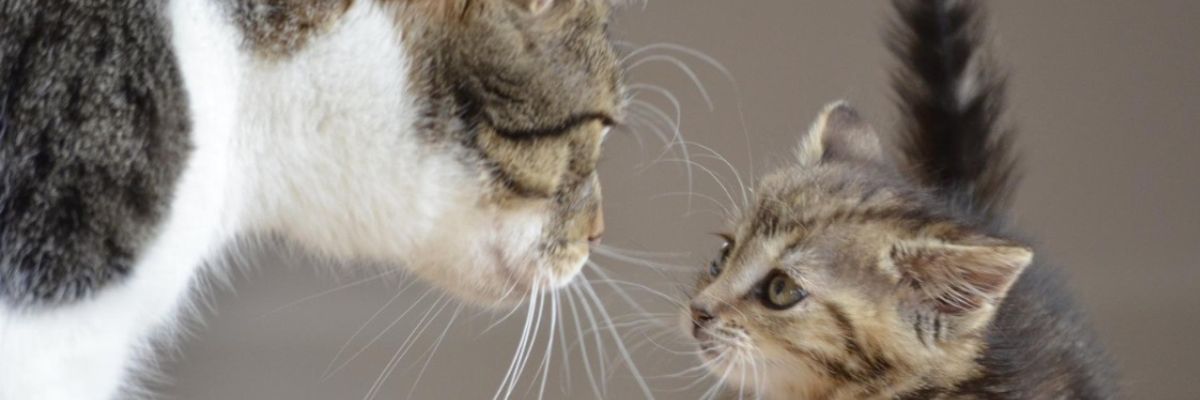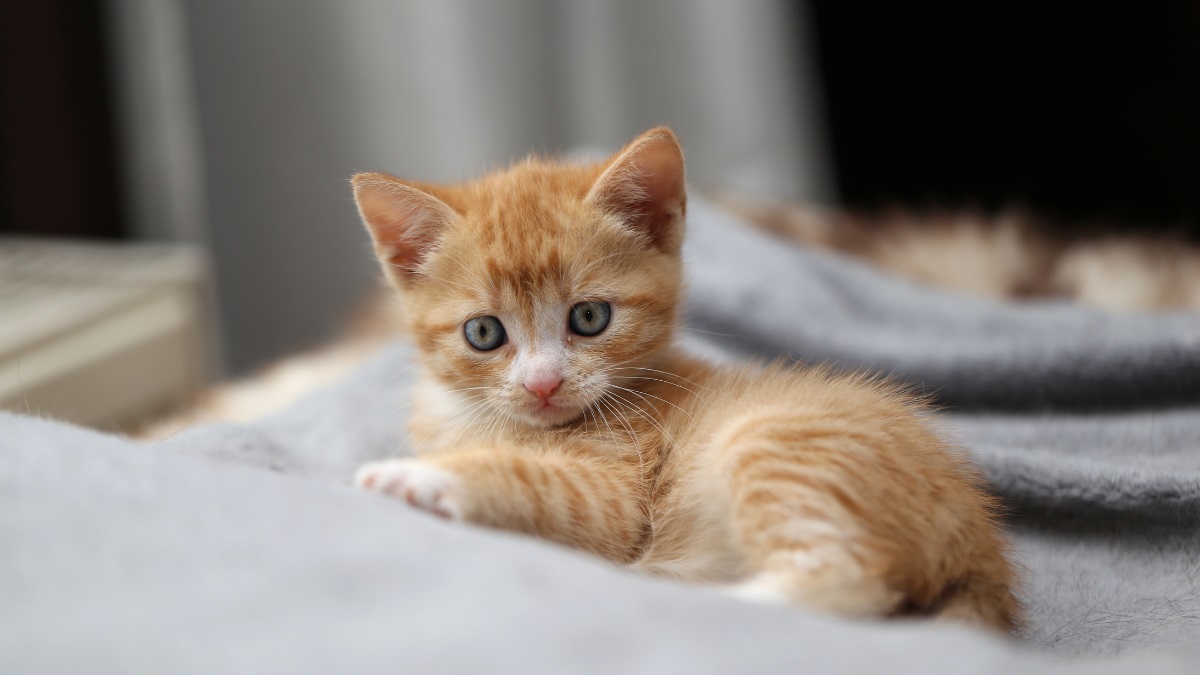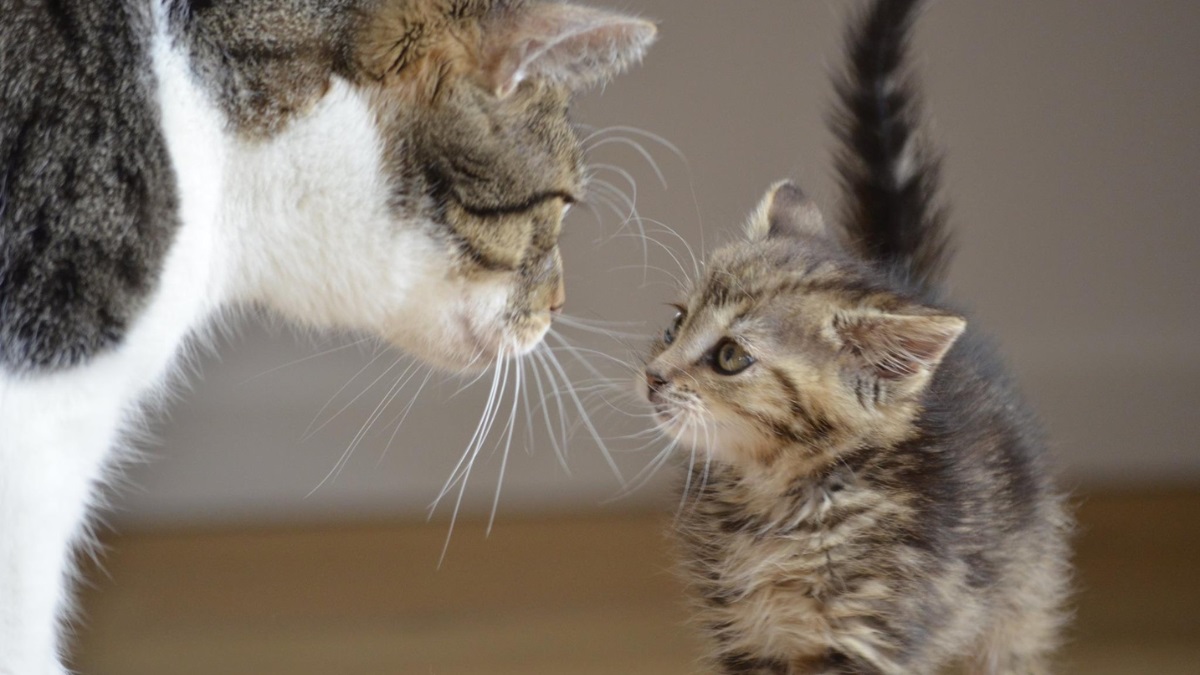Do you need help?

What is kitten socialisation?
Socialisation is a vital point in a cat’s early life when they begin to learn what’s safe in their environment. During this time, typically within the first couple of months, kittens get familiar with new experiences, people, pets, and everyday sounds. Exposure to a variety of gentle, positive encounters helps shape a confident, healthy and happy adult cat.
Introducing new things early is essential for successful cat socialisation, but it’s just as important not to overwhelm them as it can become a bit scary. Go at your kitten’s pace, and focus on creating calm, positive experiences they can build on.

When should you socialise your kitten?
The kitten socialisation period is generally between 2 and 10 weeks of age – though this can vary slightly. By the time your kitten comes home, some of this period may already have passed. If so, much of the groundwork may have potentially been laid at the breeder’s home or rescue centre, weeks or months prior. It’s worth asking what experiences your kitten has already had (for example, have they been involved in playing with other cats or been exposed to other pets, including dogs), so you can continue building on them when they arrive.
It’s important to remember that your kitten will continue to encounter new things as they age into adulthood, and ongoing gentle exposure is essential for helping them adapt confidently into the world.

Can older or nervous kittens still be socialised?
Absolutely. If your kitten missed out on early the socialisation period, or is naturally shy, they can still learn to feel safe and relaxed, it just takes a little more time and patience. Creating a calm, predictable environment and letting them come to you can go a long way toward building trust.
If you are looking to start socialising your kitten, here are some top tips and advice you can follow to support their development:
1. Be calm and gentle
Once your kitten has had time to settle into their new surroundings, it’s time for introductions. As exciting as it is to welcome them, keeping the environment quiet and calm helps them feel safe.
Ask everyone to sit quietly on the floor and let the kitten come to them at their own pace. Avoid reaching out suddenly or crowding them. Let their curiosity lead the way.
2. Human interaction
Introduce your kitten to a range of people – different ages, voices, and appearances. This helps them become comfortable around a variety of individuals and get used to physical stimulation.
Gently handle your kitten daily. Introduce being affectionate and help them get used to being held and examined. Supervise children closely and teach them to be gentle and respectful.
Make sure to reward your kitten’s calm, confident behaviour with praise or a small treat.
3. Everyday noises & activities
Kittens raised in a quiet environment can become frightened by common household sounds later on. Gradually expose them to:
- Vacuum cleaners, washing machines, TVs, doorbells
- Noisy toys, opening umbrellas, running taps
- Car journeys in a secure carrier
Keep these sessions brief and reassuring. If you notice that your kitten seems fearful or uncomfortable, never force them to stay near the noise. Distance and patience are key.
4. Other pets
If you already have other pets at home, introductions should be slow and controlled.
- Start by allowing your pets to sniff and smell each other through a closed door or baby gate
- Keep initial meetings short and supervised
- Reward calm behaviour on both sides
- Never leave a new kitten unsupervised with another animal until you’re confident they’re comfortable together
- Don’t forget, this process can take days or even weeks. Go at your kitten’s pace.
5. Handling & grooming
Helping your kitten get used to being handled now will make vet visits and grooming much easier.
- Gently touch their paws, mouth, ears, and tail.
- Introduce brushing their fur, nail clipping, and gentle tooth cleaning.
- Handle them on a table or towel to simulate what your cat will experience during vet visits.
6. Litter training & safe spaces
- Your kitten needs a quiet, secure space where they can relax and feel in control.
- Provide a quiet room or den where your cat can retreat.
- Make sure the litter tray is easy to access and kept clean.
- Offer scratching posts, hiding spots, and interactive toys for your kitten.
Signs your kitten is well socialised
A well-socialised cat will typically:
- Seek out human interaction
- Enjoy being handled
- Explore new environments with curiosity
- Play confidently, even around others
- Recover quickly from mild startles or surprises

